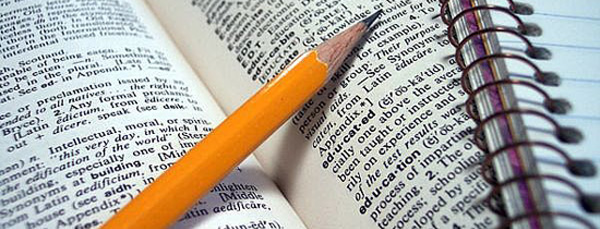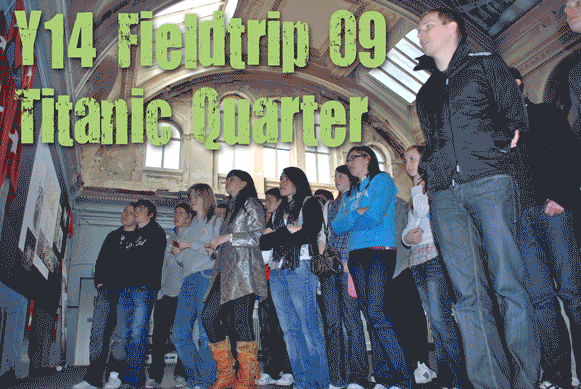This video will give you a feel for what Geography is like in Lurgan College.
- some information on how the study of Geography will help develop you for life and work (immediately below left)
- information on the advice we give on revision techniques and study skills so your parents can help support you in your studies (immediately below right)
- information on the careers prospects emerging from the study of Geography in school and beyond (towards the bottom of the page)
Why study Geography?
 What we're about
What we're about
Geography is all around us: from the Haiti earthquake, to the Icelandic ash cloud; from the challenge to ‘Make Poverty History’, to the threat of global warming; from immigration into Northern Ireland, to the risk of a global swine flu pandemic. The GCSE Geography course gives you opportunities to increase your knowledge and understanding of many key aspects of life in this ever-changing, exciting and challenging 21st Century world. It helps you to learn about and develop opinions on local issues as well as issues of global concern, equipping you to be better informed citizens of the world in which you live.
Skills for life and work
In addition to learning about the world, you will be given an opportunity to use and develop a wide range of useful skills for life. These include:
· Communication – you will get opportunities to develop your skills of writing in prose; you'll get to investigate written resources and you'll have the chance to talk and listen to others in a variety of settings including group work and role play. You'll be able to work on your negotiating skills as you argue for your opinion on the issues we discuss during the course.
· Using number– we get bombarded every day with facts and figures thrown at us from every direction, as people try to persuade and convince us through their statistics. In the Geography class, you will be able improve skills at critically assessing data, spotting trends and patterns in tables, graphs and maps.
· Using ICT– you'll get plenty of opportunities to use ICT creatively during the course. As well as things like Word, Powerpoint and Excel, we make wide ranging creative use of ICT. You will get to write and record your own video on earthquakes; you'll take virtual fieldtrips using Google Earth; you'll produce their own dynamic ICT maps using the Geographic Information Systems we use at GCSE. We can only give you a flavour here of the many ICT skills you be introduced to during your course.
· Other skills are incorporated too – given the up to date nature of Geography, you will be dealing with many contemporary issues, where you'll get a chance to solve problems and make decisions, all in the context of working with others - vital skills for life both in and beyond school.
These wide and varied skills not only make the study of Geography interesting, but they will stand you in very good stead as they move on in both their education and the rest of their life.
How parents can use this site
In many of our conversations during Parents' Meetings, you talk to us about wanting to work with the school to help your child as they revise. You tell us that you know your child is in their bedroom working away, and that you want to support them, but are unsure how best to do this at times.
This page is designed to give you some specific guidance to help your child. It'll show you the kinds of tailored, detailed advice we give to our pupils about studying and exam technique. Feel free to access this information and use it to help your child as they study and prepare for their exams.
Revision Techniques

The resources on Revision Techniques in the Skills section are designed to help our pupils work smarter, not just harder (as the old BT TV ads put it!) If your son or daughter spends hours studying but still seems to struggle to get information into their head, check this out so that you can help them to study more effectively.
You'll also find some guidance on making out a revision timetable in this section. You may want to work with your child to help them produce a timetable that's comprehensive yet realistic.
Exam Techniques

Even if a pupil knows his notes well, he still needs to be able to communicate that understanding using the formats required by the exams. The Skills section contains guidelines on a range of exam techniques that pupils need to master to be successful. If you're talking about how your child has got on after a mock exam, for instance, you may want to look up the appropriate exam technique guidance so you can work with them to learn from and improve on their exam performance.
Going places
Geography is about the real world, and so fieldwork plays an important role at both GCSE and A level. It provides the pupils with a valuable and enjoyable opportunity to explore parts of our country and apply the theory learnt in the classroom to the real world around them. At GCSE, we take a trip to the Colin River in Belfast, where we’ll follow the course of a river as it moves downstream, observing the changes in its features as it does. At AS, we get to spend the day at the beach, where we investigate plant succession on Portstewart Strand. At A2, our fieldtrip takes us to the Titanic Quarter of Belfast, where we get to take a tour round the palce where the Titanic was designed and built, as well as visiting some of the Peace Walls as part of our study of Ethnic Diversity.

The photos above are from our Y14 trip to the Titanic Quarter in September 09 and the video to the right is of our Y11 field trip to the Colin River, Belfast in June 2010.
GCSE Geography is an exciting, varied, enjoyable and relevant course, which prepares pupils well both for future studies post GCSE, and for life beyond school and university.
Lurgan College Geography – it’s where it’s at!
Geography and your career
"The stereotypical image of a geographer dressed in a fleecy anorak and
corduroy trousers, map reading and memorising capital cities is a far
cry from the reality of modern geographers. Although knowledge of space and place are key elements of geographical learning,
today you are more likely to discover geographers using sophisticated
computerised mapping techniques, analysing data for deciding how best
to distribute aid in Afghanistan or monitoring the impact that a change
in land use has on an endangered species."
Tina Gardner, Communications Officer, Royal Geographical Society
Careers based on Geography can be found in the following sectors of employment (click on the links to find out more):
This link to the RGS will give you more information on taking Geography into university level and beyond. Also, these links will take you directly to the Geography Departments of the two main universities in Northern Ireland:
Here are some videos from Royal Geographical Society giving you some ideas of what you can use Geography for in your life and future career.
Here are some videos produced by the Geographic Information Systems (GIS) company ESRI, showing how GIS is used in a variety of careers.
